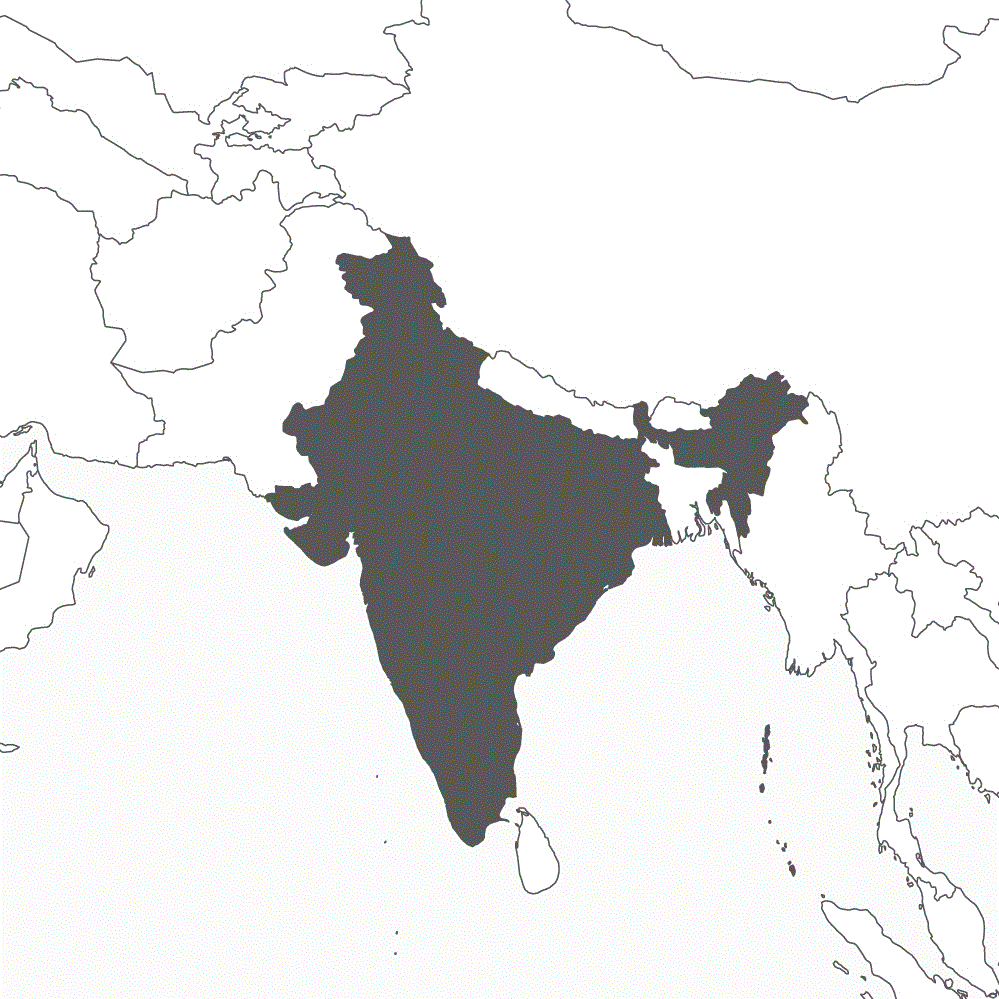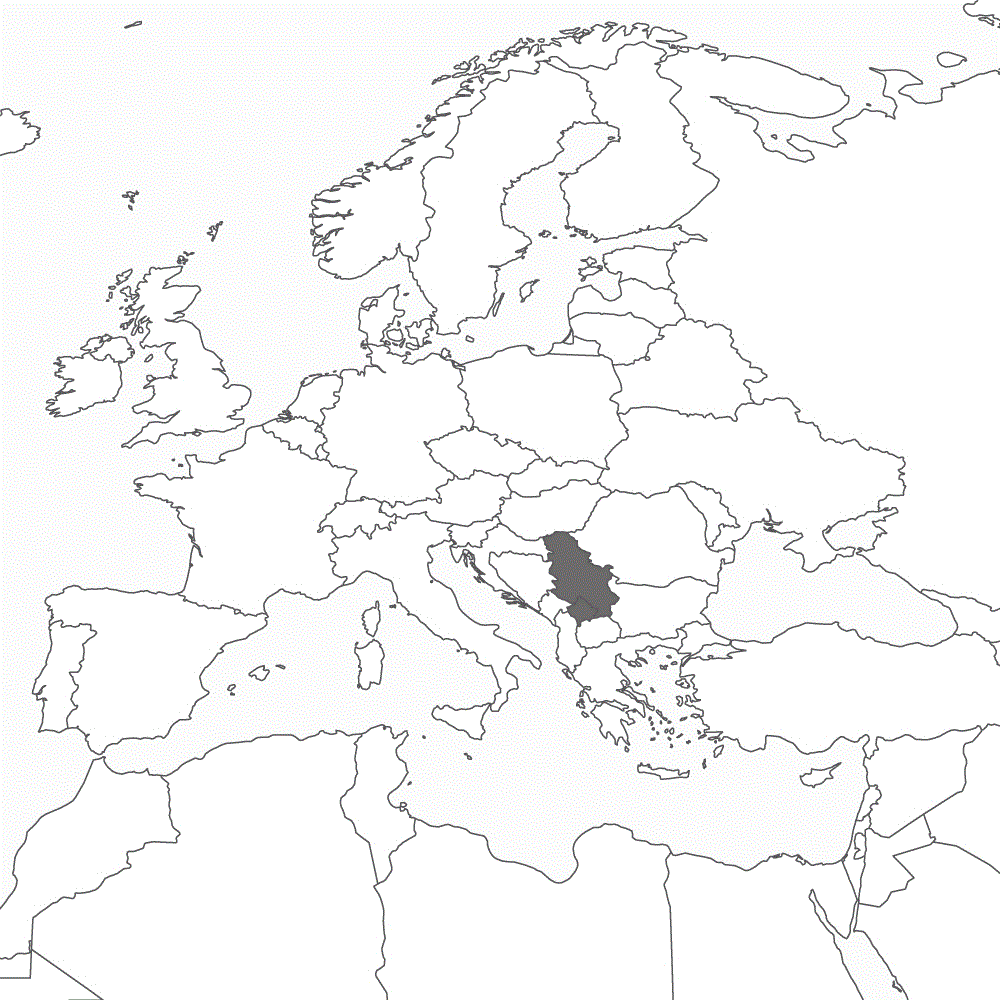China's Counterpart (II)
German think tanks call for closer cooperation with India - also militarily - targeting China.
BERLIN/NEW DELHI (Own report) - In the run-up to the next EU-India summit, on May 8, influential German think tanks call for Germany and the EU to intensify their cooperation with India, in light of the West's power struggle with China. New Delhi is also taking a stance against Beijing and sees itself as a major Asian counterpart to the People's Republic of China. Border conflicts between the two countries in the Himalayas have recently led to military clashes with casualties on both sides. In its course against China, India can rely on the growing military cooperation with the USA. The influential Bertelsmann Foundation is now recommending that Berlin and the EU step up their military and armament cooperation with New Delhi. Human rights organizations are raising serious accusations against the Indian government, because of its brutal repression of the current farmer protests and also members of the opposition in Kashmir. Kashmiri repressive forces are using assault rifles made by the US affiliate company to Germany's Sig Sauer arms manufacturer. Read more
"The Alliance is Back"
Biden and Merkel promote "transatlantic partnership." However, disagreements on Russia, China and punitive tariffs persist.
BERLIN/MUNICH/WASHINGTON (Own report) - Persisting transatlantic disagreements cast a shadow over the purported unity between the USA and Western Europe celebrated at the Munich Security Conference (MSC). At the conference, which, due to the ongoing pandemic had to be held in a reduced and virtual format - "Special Edition" - last Friday, US President Biden remarked, "the transatlantic alliance is back." Angela Merkel declared Germany stands "ready for a new chapter in transatlantic relations." As both sides prepare to intensify pressure on Russia and China, Merkel asserted on Friday that Germany still wants to "offer cooperation" to Russia, for example in reference to the Nord Stream 2 gas pipeline, rejected by the USA, also under the new president. Similar disagreements are becoming apparent in their approach to China: Business with China is considered indispensable for numerous German companies. Despite the EU's insistence, Washington has not even rescinded Trump's punitive tariffs and is intensifying the "Buy American Act" very much to the Union's resentment. Read more
Like a Colonial Ruler
Demands for new sanctions against Moscow are raised in Berlin: "We want regime change."
BERLIN/MOSCOW (Own report) - Among Germany's ruling elites, demands for imposing new sanctions on Moscow and stirring up Russia's younger generation are increasing. "The objectives we have in relationship to Russia are very big" explained Gabriel Felbermayr, President of the Kiel Institute for the World Economy (IfW), "we want ... regime change." The recent protests by the Russian dissident Alexey Navalny's followers, which had been coordinated from Berlin, were not enough to endanger "the regime's stability," according to the German Institute for International and Security Affairs (SWP). One could, however, count on the young generation ("generation Putin") that includes many young people, who are very critical of the government, an assistant of the Green Party-affiliated Heinrich-Böll-Foundation suggests. Navalny is particularly appealing to younger people; he embodies "a new type of politician." The man, German elites, acting in the manner of colonial rulers, would like to bring to power in Russia, is only supported by a small minority in the Russian population. Read more
"Ambition in Security Policy"
German minister of defense and inspector general of the Bundeswehr presented a joint position paper "Bundeswehr of the Future."
BERLIN (Own report) - The conflict with Russia is gaining in importance in Berlin's military planning in comparison to previous foreign deployments in the global south. This becomes evident in the position paper ("Reflections on the Bundeswehr of the Future") published last week by the German Minister of Defense Annegret Kramp-Karrenbauer and Inspector General of the Bundeswehr Eberhard Zorn. Initially, since the 1990s, the Bundeswehr had focused its capability profile on foreign deployments primarily in the Middle East and Africa and, since 2014; it has increasingly been shifting its focus towards the strategic requirements of the great power conflicts with Russia and China. In the meantime, the situation has "escalated," according to the position paper. Germany's role as a strategic military logistics "hub" eastward should therefore be enhanced. With the Bundeswehr's growing focus on the power struggle with Russia, the current position paper is but an initial impetus - further steps will follow over the next few months. Read more
Strategic Rivalry over Eastern and Southeastern Europe
With Deliveries of Vaccines, Beijing strengthens its position in Eastern and Southeastern Europe –to Berlin's dismay.
BELGRADE/BEIJING/BERLIN (Own report) - China, in view of the EU's vaccine disaster, is offering Covid-19 vaccines also to other Eastern and Southeastern European nations, in addition to Serbia and Hungary. This is the result of yesterday's "17 +1" summit meeting, to which representatives of 17 Eastern and Southeastern European countries met with China's President Xi Jinping in a video conference. Over the past nine years, Beijing has been strengthening its relationships in the region with the "17 +1" format. Last year, trade with the participating countries had increased by 8.4 percent, in spite of the corona crisis, to reach a volume of more than US $103 billion, and Chinese investments in the area have again increased, despite the massive pressure being applied by both Brussels and Washington to persuade the countries to, at least, limit their cooperation with China. According to a recent survey by the European Council on Foreign Relations (ECFR), the People's Republic of China has "become the most prominent third actor" in non-EU Southeast European countries, including Serbia. Berlin is also struggling against U.S. attempts to strengthen its influence in the region. Read more
Colonial Methods
Russian Foreign Minister levels harsh accusations at the EU and its sanctions policies. Brussels seeks Russian Covid-19 vaccine.
BERLIN/BRUSSELS/MOSCOW (Own report) - The Russian government is striking back at the EU's accumulating sanctions and threats of sanctions. In a press conference last Friday, Foreign Minister Sergey Lavrov lashed out at EU Foreign Policy Chief Josep Borrell. EU diplomats see this incident as a bitter setback for Brussels. In response to EU accusations of unprecedented police violence in Russia, Lavrov's ministry published a collection of video footage showing cases of serious police brutality within the EU and the USA. Borrell officially admitted police abuses exist in the West. Moscow, furthermore, expelled three diplomats from EU countries, accusing them of participating in unauthorized demonstrations. For Berlin this comes at a critical moment: Berlin is seeking to compensate for the dramatic shortage of Covid-19 vaccines by purchasing the Russian Sputnik V vaccine, which, until recently, had been denigrated here in Germany. Berlin also needs Moscow for important foreign policy projects. Read more
The EU's Vaccination Disaster
Von der Leyen under growing pressure over vaccine disaster. Southeast Europe ignores EU and orders Russian and Chinese vaccines.
BERLIN/BRUSSELS (Own report) - The EU Commission and its President Ursula von der Leyen are coming under growing pressure over their Covid-19 vaccine procurement blunders. Von der Leyen's predecessor Jean-Claude Juncker has criticized not only the significant protraction of contract negotiations. It is particularly damaging that the export controls introduced under German pressure give "the impression that the suffering of other people, especially in poorer countries" does not affect the EU. Japan is now developing its own national vaccine production to ensure access to vaccines, even if an EU export ban is imposed. Anger is also growing in non-EU countries in Southeast Europe. ”We wanted to go for western vaccines," an official from North Macedonia declared. However, since no deliveries are in sight, Russian and Chinese vaccines have to be ordered. Under growing pressure, even the German government is now considering vaccines from Russia and China, which it had so far been denigrating. Read more
Coup in Myanmar
The West considers sanctions following coup in Myanmar. Power struggle against China smoldering in background.
BERLIN/NAYPYIDAW (Own report) - Following Monday's coup in Myanmar, the EU and the USA are considering imposing new sanctions on that country. Already on Monday, US President Joe Biden declared that he would immediately review the reintroduction of coercive measures. The EU announced yesterday that it will "consider all options at its disposal to ensure that democracy prevails." For a long time during the Cold War, the Federal Republic of Germany had cooperated closely with the Myanmar military regime for geostrategic reasons, including arms exports. Germany, like the West as a whole, had been disengaging from the country since 1990, again seeking better relations only after China began initiating important geostrategic projects - such as the construction of a transport corridor from the Indian Ocean to southwest China to bypass the Straits of Malacca that Washington can easily block. The West's attempt to outmaneuver Beijing in Naypyidaw has failed. Aung San Suu Kyi, the de-facto head of government ousted by the military yesterday, had recently intensified cooperation with China. Read more
GERMAN-FOREIGN-POLICY.com
Information on German Foreign Policy: News + Interviews + Analyses + Background



